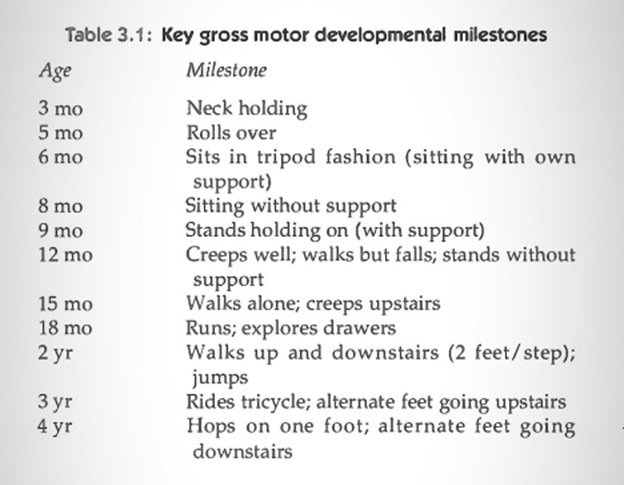A nurse is assessing a 10-month-old infant. Which of the following findings should the nurse report to the provider?
infant cannot build a tower of three or four cubes
The infant does not sit steadily without support
The infant is unable to imitate animal sounds
The infant cannot turn pages in a book
The Correct Answer is B
At 10 months of age, most infants should be able to sit steadily without support. If the infant is unable to sit without support or shows difficulty maintaining balance while sitting, it may indicate a developmental delay or potential motor coordination issues. It is important to report this finding to the healthcare provider for further evaluation and appropriate intervention if necessary.

Nursing Test Bank
Naxlex Comprehensive Predictor Exams
Related Questions
Correct Answer is B
Explanation
Crying is a common behavioral response to pain in infants, and it serves as an important indicator of discomfort. Infants may cry more intensely, have a high-pitched cry, or exhibit inconsolable crying when they are in pain. It is important for the nurse to assess the infant's pain level and provide appropriate interventions to alleviate the discomfort.
Correct Answer is A
Explanation
At this age, parallel play is common, where children engage in independent play near each other but do not actively interact or engage in cooperative play. They may observe each other, imitate each other's actions, or occasionally share toys, but they are still developing social skills and may not engage in sustained cooperative play or easily share and trade toys. Each child is likely to focus on their own activities and play with one or two preferred items, ignoring most of the other toys.
Whether you are a student looking to ace your exams or a practicing nurse seeking to enhance your expertise , our nursing education contents will empower you with the confidence and competence to make a difference in the lives of patients and become a respected leader in the healthcare field.
Visit Naxlex, invest in your future and unlock endless possibilities with our unparalleled nursing education contents today
Report Wrong Answer on the Current Question
Do you disagree with the answer? If yes, what is your expected answer? Explain.
Kindly be descriptive with the issue you are facing.
